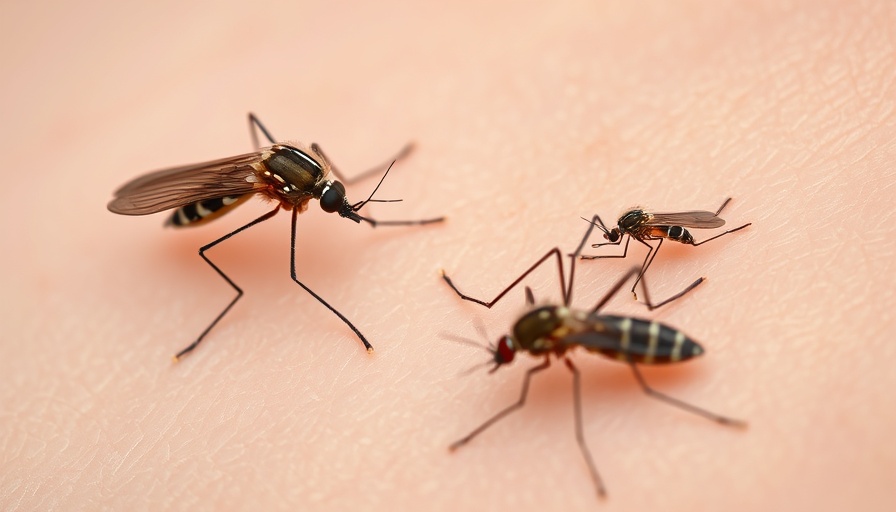
Why Mosquitoes Choose You: The Science Behind Their Preferences
As summer weather brings more rain to San Antonio, it also creates the ideal breeding ground for mosquitoes. With over 75 species of these buzzing nuisances in Texas alone, many individuals wonder why some people seem to attract these pests more than others. Recent insights from experts shed light on various factors influencing mosquito attraction, allowing residents to understand better and mitigate their risks of being bitten.
Understanding Species-Specific Behavior
Each of the numerous mosquito species exhibits different tendencies. For instance, Molly Keck, an integrated pest management specialist at Texas A&M Agrilife, notes that varying protein compositions in mosquitoes' saliva can elicit distinct reactions from individuals. Some might feel a sharp itch that fades quickly, while others experience prolonged irritation. Moreover, this variability informs which mosquito repellent works best. Having a variety of repellents on hand is crucial during high mosquito activity times.
Dress Smartly: Clothing Colors That Matter
Surprisingly, the colors we choose to wear can influence how attractive we are to mosquitoes. Experts suggest that wearing darker clothing might increase one’s chances of being bitten. Lighter colors like white and blue are less appealing to these insects. While many consider the aesthetic of summer attire, understanding mosquito behavior could steer you toward more strategic choices for your wardrobe.
Blood Type: How It Affects Your Risk of Being Bitten
Some intriguing research indicates that blood type can play a role in mosquito attraction. Studies have found that individuals with Type O blood may be more appealing to these pests than those with other blood types. Although people of all blood types can become targets for mosquito bites, Type O individuals might need to take extra precautions when venturing outdoors during peak mosquito season.
Other Factors: From Pregnancy to Gender
Interestingly, gender and bodily chemistry are significant factors in attracting mosquitoes. Women often report higher instances of bites than men, partly due to fragrances from lotions and hair products that can tempt mosquitoes. Additional studies indicate that pregnant women are particularly susceptible because their bodies emit higher levels of carbon dioxide and maintain warmer temperatures, making them easier to detect than others.
City Initiatives: Combating Mosquito-Borne Illnesses
To combat the rising mosquito population and the diseases they spread, the City of San Antonio has implemented the “Fight The Bite SA” campaign. This initiative includes trapping and testing mosquitoes and fogging to reduce their numbers, all part of a broader public health effort to minimize risks associated with these pests. Residents are encouraged to stay informed about the city’s efforts and to take personal precautions against bites during mosquito season.
Frequently Asked Questions About Mosquitoes
1. **Do all mosquitoes bite?**
Only female mosquitoes bite humans as they require blood to lay eggs, while males feed on nectar.
2. **How effective are repellents?**
Effectiveness varies; it's wise to experiment with different types based on the mosquito species present in your area.
3. **What environmental factors contribute to mosquito population growth?**
Standing water from rainfall is a major contributor, providing breeding sites for mosquitoes.
Take Action: Protect Yourself This Summer
Understanding mosquito behaviors and preferences can help you stay ahead of these pests. By choosing appropriate clothing colors, using effective repellents, and being aware of your surroundings, you can enjoy the summer months with less worry about mosquito bites. Stay informed about city initiatives and ongoing surveillance for mosquito activity as you engage in outdoor activities.
 Add Element
Add Element  Add Row
Add Row 



 Add Row
Add Row  Add
Add 


Write A Comment